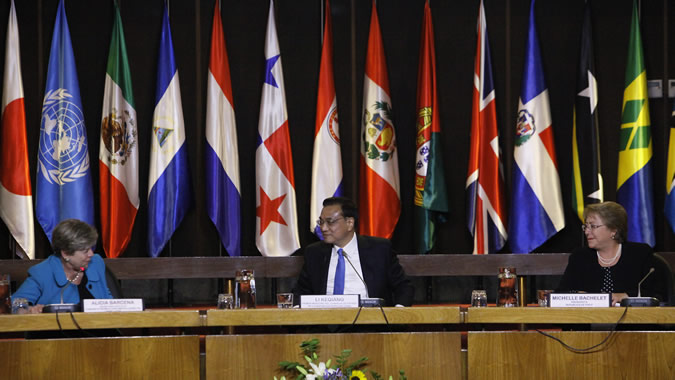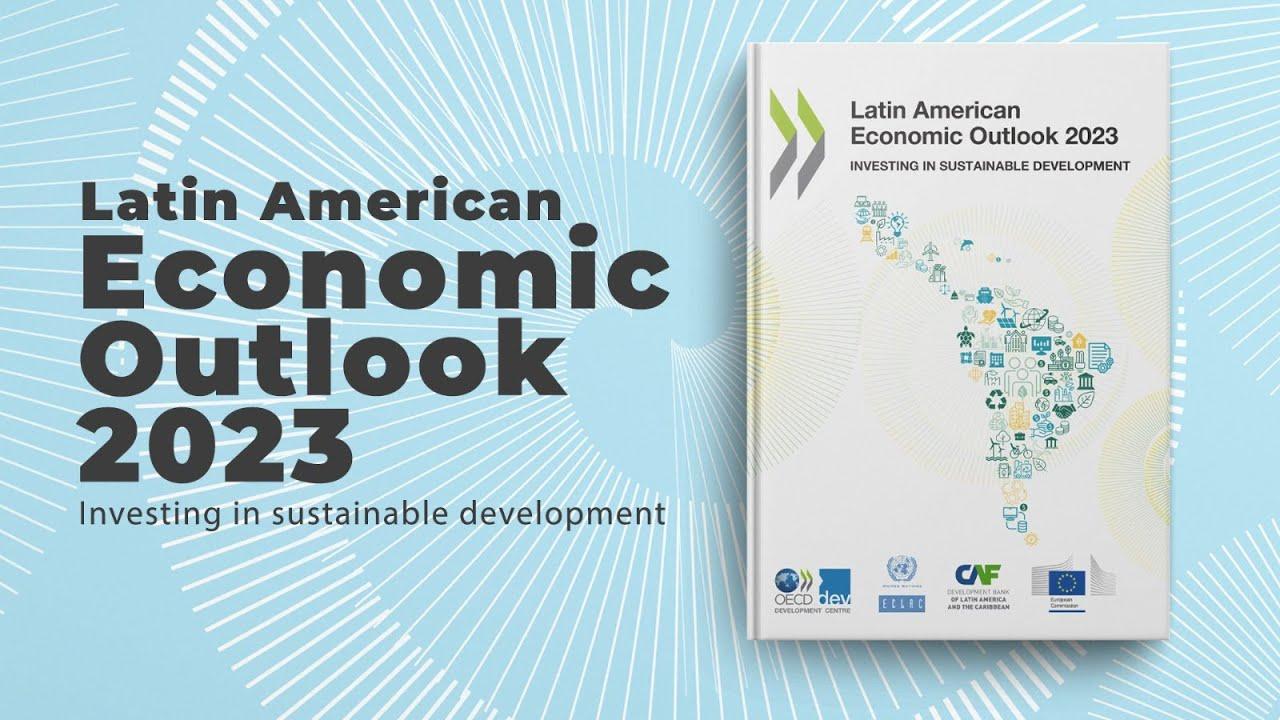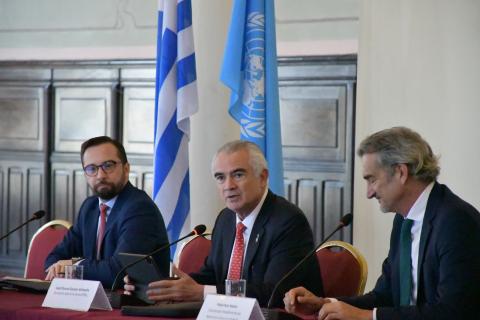video
(May 25, 2015) “China is prepared to deepen its cooperation with Latin America and the Caribbean in order to mutually learn from each other and forge together a new path for the China-Latin America and the Caribbean Comprehensive Cooperation Association, announced by President Xi Jinping last July,” said the Asian country’s Premier, Li Keqiang, during a keynote lecture at ECLAC’s headquarters in Santiago, Chile.
The senior official gave a lecture aimed at the entire Latin American and Caribbean region, at the end of a tour that included four countries: Brazil, Colombia, Peru and Chile. Chilean President Michelle Bachelet attended the event as a guest of honor.
The Premier was received by Alicia Bárcena, ECLAC’s Executive Secretary, who welcomed him in the name of this regional United Nations commission and stressed the relevance of his message for the whole region to better understand its short- and medium-term strategies.
“The relationship between China and Latin America and the Caribbean has reached enough maturity to take a qualitative leap forward and advance towards strategic ties that provide mutual benefits,” said Alicia Bárcena.
“His visit marks a milestone in the deepening of economic, political and cooperative relations that has taken place in recent years. We at ECLAC have carefully followed the complex process of reforms that China is undergoing to advance towards an inclusive development model characterized by greater environmental sustainability,” said the United Nations official.
According to ECLAC’s figures, between 2000 and 2014 bilateral trade between Latin America and the Caribbean and China expanded 22 times over. China is now the second biggest trading partner of the region and the first of Chile and Brazil. The expansion and deepening of financial and investment relations, particularly in the areas of infrastructure and energy, should bring about important mutual benefits, Bárcena stressed.
Bárcena emphasized that actions must be taken to advance on the overall prosperity of our societies, which constitutes a shared responsibility. For example, she said that Chinese investment will make a greater contribution to our region’s development if it is oriented not only towards the traditional sectors of hydrocarbons and mining, but diversifies towards manufacturing, services and the development of better infrastructure in transportation, energy and logistics.
“There is also a great deal of room to promote a high-level dialogue and closer positions between China and the region regarding key issues on the global agenda, in particular the post-2015 Development Agenda and the future multilateral regime to combat climate change, as well as the reform of the international monetary system. The strategic approximation of China and Latin America and the Caribbean is also part of the necessary strengthening of cooperation among countries from the south,” ECLAC’s Executive Secretary said.
In his keynote lecture, the Chinese Premier thanked ECLAC for its contributions to regional thinking and cooperation. He also stressed that Latin America is a cornerstone for global peace and stability, becoming a “new leading area” constantly on the rise in terms of international politics and economics.
Li Keqiang said that the promotion of cooperation between China and the region in terms of productive capacity will boost development in such a way that everyone wins. He explained that China proposes that both parties explore a new 3 x 3 cooperation model, focused on the joint construction of the three major pathways of logistics, energy and information technology; the virtuous interaction between companies, society and government; and the broadening of three financing channels (funds, credits and insurance).
He added that China and the region should intensify even more their international collaboration and strengthen their coordination to speak with a common voice on transcendent issues such as the reform of the international financial structure, the negotiations for a new agreement on carbon emissions, the development of the post-2015 Development Agenda, as well as cybersecurity, with the aim of forging a global network of associations for balanced development and of universal benefit, safeguarding in the best way possible both common interests and developing countries’ right to have their say.
Li Keqiang announced that during his current tour of four countries in the region, China signed more than 70 cooperation documents in the areas of energy, mining, infrastructure construction, nuclear plants and scientific and technological innovation, valued at more than $30 billion dollars.
In addition, the Chinese Premier reiterated the country’s commitment to keep boosting cultural exchanges between the two sides as well as broaden cooperation to maximize the results of the First Ministerial Meeting of the China-CELAC Forum.
“China is prepared to join forces with Latin American and Caribbean countries to contribute in a small but meaningful way to the construction of our happy home and to work together for a more beautiful world,” the Premier concluded.



